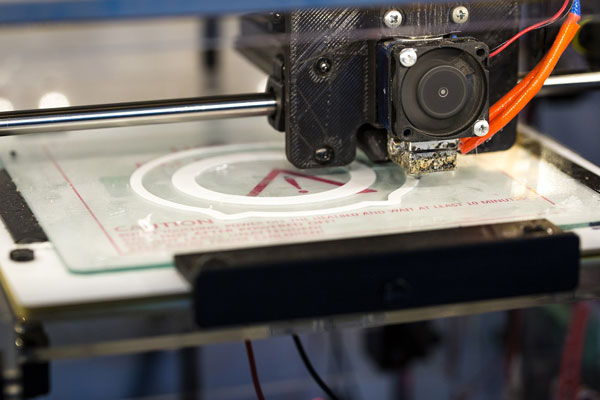Pharmaceutical start-up MB-Therapeutics uses 3D printing to offer personalized treatment

[3D printer. Photo Credit to Pixabay]
On October 11th, 2023, it was found that a start-up company, MB-Therapeutics, collaborated with the University Hospital Center of Nimes, and used a 3D printer to offer patients on-demand treatments.
According to Synopsis.com, 3D printing in the medical field defines the creation of physical replicas of anatomical structures using additive manufacturing processes.
The 3D printing industry works not only in the medical field but also in pharmaceutical companies trying to create personalized, easily administered medications.
The aim of the two institutions – MB Therapeutics and The University Hospital Center of Nimes – was to create personalized medication production solutions for sick children, enhancing the quality of life for both children and their families.
This visionary goal was driven by a deep commitment to revolutionize pediatric healthcare.
The two companies found a gap in the pharmaceutical industry, as most l businesses failed to satisfy the specific medical conditions or needs of children.
In order to mitigate this gap, they stopped using capsules and tablets frequently, as they were ill-suited for children due to the size and ingredients of those pills.
“Eight years of experience and research have allowed the company to develop a patient-centric solution that enables the ability to combine multiple active ingredients within a single medication”, the Co-founder of MB-Therapeutics mentioned.
The development of a patient-centric solution implied a crucial turning point in the field of pharmaceuticals and biomedical sciences.
It was not only about personalizing treatments for young patients but also about doing so efficiently and conveniently.
As opposed to printing pills layer-by-layer, the team promoted a volumetric printing approach – the model being made from a projected pattern – which enabled curing full vats of resin in a single run.
Through this method, the company elevated the rate at which custom medication is produced, becoming a unique selling point that could prove vital to making end-use clinical 3D printing more viable.
The solution allowed pharmacists to safeguard against dosing errors.
MB-Therapeutics facilitated the tailored production of oral forms, meeting each particular need of the patient.
This also allowed the addressing of healthcare waste, reducing substantial medication waste – 15,000 tons – in many countries such as France.
In essence, the eight years of dedication and research taken by MB-Therapeutics had culminated in a patient-centric solution that went beyond personalization, streamlining most of the treatment experience.
“Efforts are being made to make 3D printed medicines more accessible”, Ada Shaikhang – a reporter of the 3D printing industry – said.
This statement highlighted a significant aspect of this grounding innovation – its scalability and the broader implications for the entire medical field.
As 3D printing technology continued to evolve and become more commonplace, this held the promise of making treatments tailored to an individual’s specific needs more accessible to a broader range of patients – beyond just those served by a single collaboration from a start-up company and a healthcare institution.
The association undertaken by MB-Therapeutics and the University Hospital Center of Nimes was not just a remarkable story of personalized medicine but also an emblem of progress in the field of 3D printing and healthcare innovation.
As these efforts continue evolving, they will ultimately have the potential to uplift and empower individuals facing healthcare challenges, marking a promising turning point in the scope of medicine.

- Suh Kyung (Chloe) Yu / Grade 11
- Chadwick International School


